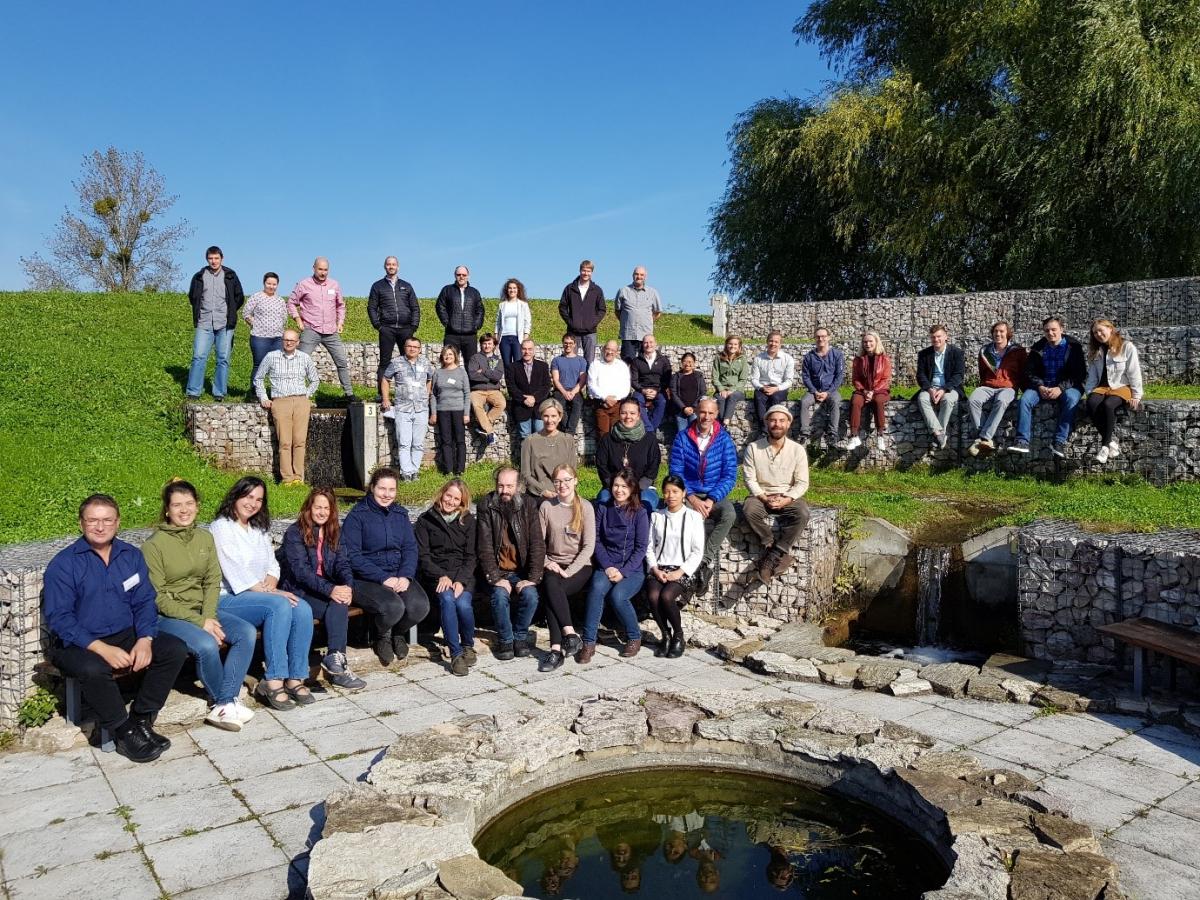Looking Back at the OPTAIN General Assembly in Warsaw
In September 2021, a three-day venue was hosted by Warsaw University of Life Sciences (SGGW) partners at the SGGW Water Centre in Poland. Despite ongoing COVID situation, most of the project partners were able to attend live to present their findings and participate on workshops arranged by the organizers and project coordinators.

At the beginning, Prof. Dr. Martin Volk presented the aims of the plenary meeting and the overall meeting structure, which was a daily mix of plenary presentations, case study presentations and group discussions. Different parallel discussion formats were planned, including world café, open space sessions, workshops, as well as poster sessions.
The opening session also hosted a guest key speaker, Prof. Dr. Tomasz Okruszko, MScEng, Vice-Rector for Science of the Warsaw University of Life Sciences.

The agenda of the three days was split by the work packages (WP) of the project with the WP1 and WP2 going first, presenting actor involvement and NSWRM in case study areas (prioritisation, cataloguing, performance indicators). The second day belonged to WP3, WP4, and WP5 with the focus on data, model set-ups, scenarios, and economic survey. The last day of the main venue was reserved for WP6, WP7, and WP8. Their topics revolved around policy, synthesis, dissemination, and project management.

The whole venue was adjusted for presentations and various forms of workshops and smaller sessions during which the participants were split into smaller groups, rotating between all workshops to actively participate in each of them and provide their point of view on discussed topic.
As the OPTAIN project progressed, it already achieved some notable results. The main ones that were presented described the setting of the framework (project and case study management, common working space and communication formats, website & social media, training events and workshops), development of task-specific approaches (actor engagement, NSWRM identification, Indicator development, Data collection harmonization, modelling concepts, policy analysis, communication/dissemination), as well as initiation of the work in the case studies (stakeholder mapping, MARG establishment, local NSWRM, getting familiar with data and models).
A great deal of time was dedicated to the future of the project and what are some key milestones or deliverables needed to be done by the end of 2022. Worth to mention is the Natural Small Water Retention Measures (NSWRM) catalogue with a focus on parameterization & indicators, then there’s data pre-processing (model input data, climate data etc..) with an emphasis on overcoming data scarcities. Other partners and WPs will strive to advance OPTAIN’s model implementations, modelling protocols, recommendations for policy harmonization, and Learning Environment, a platform that is envisioned to host the project’s results for a broad public to use in the future.
Once the main venue ended, a field trip was organized to visit the local case study area, Upper Zglowiaczka. For two days, the project partners were able to observe practical implications and results of the project actions so far within the aforementioned case study area.

The project partners are now making preparations and conducting new meetings from which the second multi-actor reference group meeting happening this spring and the next plenary meeting that is planned to happen at the Lake Balaton in September 2022, hosted by the Centre for Agricultural Research (ATK).

Author: Jergus Semko




















